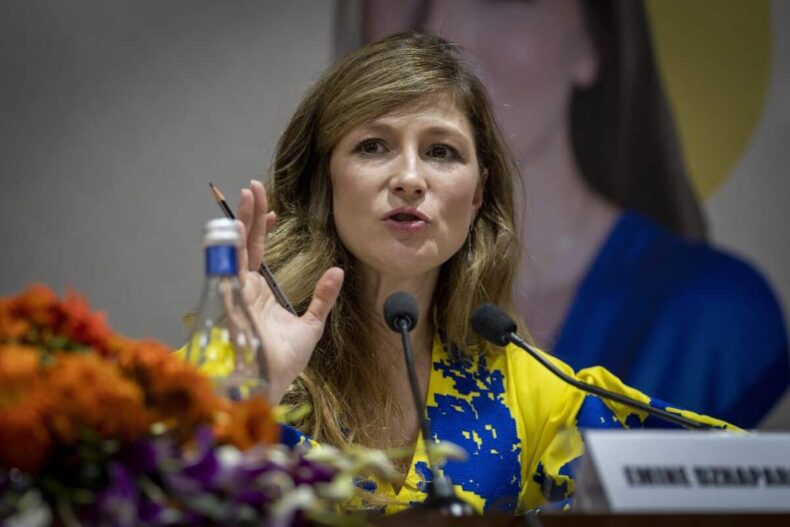The deputy foreign minister of Ukraine discussed deepening bilateral cooperation amid efforts to fight Russia’s aggression.
The First Deputy Foreign Minister of Ukraine, Emine Dzhaparova, recently visited India and proposed that Ukraine’s President, Volodymyr Zelenskyy, be allowed to address the G-20 summit in New Delhi in September 2022. Minister Dzhaparova also asked India to involve Ukrainian representatives in the G20 meetings, citing the impact of the Russia-Ukraine war on the global economy. India had previously voted in favour of allowing Zelensky to address the United Nations, which Russia opposed.

During her visit, Emine Dzhaparova spoke at the government-funded think tank Indian Council of World Affairs, where she discussed Kyiv’s efforts to fight Russia’s aggression and deepening bilateral cooperation in various fields, particularly culture. She also hoped for a visit by Indian officials to the capital city of Kyiv while calling for India to play a greater role in bringing peace.
Dzhaparova highlighted the importance of a balanced approach by India towards Ukraine and Russia, stating that being with Russia is being on the wrong side of history. She emphasised the need for pragmatic and reciprocal ties between the two countries and suggested that New Delhi build deeper relationships with Kyiv.
Meeting with Indian officials
Dzhaparova also met with Meenakashi Lekhi, the Minister of State for External Affairs, to discuss bilateral and global issues of mutual interest, cultural ties, and women’s empowerment. Lekhi assured Ukraine of enhanced humanitarian assistance.
Commenting on Ukraine’s ties with Pakistan, Dzhaparova clarified that the relationship with Pakistan is not directed against India and has been ongoing since the 1990s. She also invoked Mahatma Gandhi’s teachings, saying that fighting for rights without violence is essential.

The visit by Dzhaparova is essential, as it is the first by a senior official from Kyiv since the Russia-Ukraine war began in 2021. As India is currently the Chair of the G20, Dzhaparova’s proposal to involve Ukraine in the summit can put India in a difficult position, given the geopolitical factors involved. However, with India and Ukraine having traditionally shared ties based on cooperation and friendship, it is essential to focus on pragmatic and balanced relationships to enhance bilateral cooperation. The visit by Dzhaparova is a positive step in this direction.
India’s pragmatic neutrality
India has had a mutually beneficial and longstanding history of relations with Russia. In terms of bilateral ties, India considers a relationship with Russia a key pillar of its foreign policy. This has led to India taking a unique stand on the Russia-Ukraine war. It calls for a practical solution to peacefully resolve this conflict and maintains its pragmatic neutrality. It has also subsequently abstained from voting at the UN Security Council, UN General Assembly, and UN Human Rights Council on resolutions that condemn Russian aggression.

Despite intense criticism for not condemning the Russian invasion and imposing sanctions on the country like the West did, India’s national interests continue to dictate a position of formal neutrality. Thus, the deputy foreign minister’s wish for India to allow the President of Ukraine to address the G20 summit in New Delhi could potentially cause strife between the time-tested allies.












